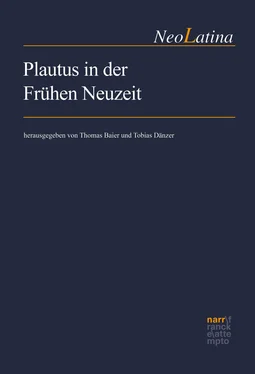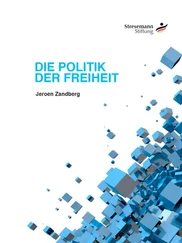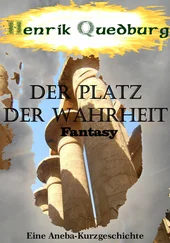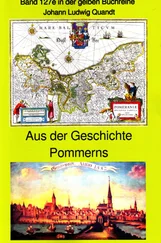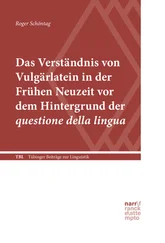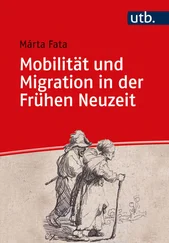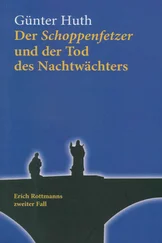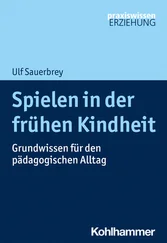Comoedias vero edidit Plautus multas […] quales autem et quot essent, quod multae dubii atque incerti nominis vagarentur, magnum inter peritos certamen fecit. Eas quidem numero esse nonnulli quinque et viginti, multi XL, aliqui centum, quidam XXX etiam super centum putant (p. 54 Ullman).
And, in this regard, Sicco PolentonPolenton, Sicco also forms his own judgment: quid autem verius, credi potius quam certo discerni potest . He recalls VarroVarro’s thesis on the possible confusion between two poets, Plautus and Plautius ( auctorem hac in re Varronem sequor , p. 55 Ullman); he also claims that neque vero defuerant qui vere scriptas a Plauto sua vel temeritate vel arbitrio usurpassent , and then mentions GelliusGellius’ account, according to which Plautus would amend the comedies of previous poets too. His sources are almost all that we possess today to reconstruct the Plautine question. Sicco PolentonPolenton, Sicco never mentions any comedy titles, but his exposition is extremely clear and can be appreciated for the lucidity of his judgment. Much of his information was then taken by a pupil of PolitianPoliziano, Angelo, Pietro Ricci or del Riccio, better known as Petrus CrinitusCrinitus, Petrus, in his De poetis Latinis Crinitus, PetrusDe poetis Latinis.14 This work enjoyed a great success, so much so that the extract of Plautus’ life was printed in almost all editions of Plautine plays until the eighteenth century.
Some titles of non-Varronian comedies are collected, together with the testimonia on the life of the poet, in humanistic manuscripts containing the twenty comedies of Plautus. On more than one occasion these lives indicate the number of plays and mention the problem of authorship of some of them: always cited is GelliusGellius (often named Agellius) and what he wrote on this subject in 3, 3, 10–11.15 The composite ms. Escorialensis T. II. 8, which contains the corpus of twenty comedies in two parts, the first written about 1420 and the second about 1435, is the oldest known exemplar of the so-called Itala recensio . The manuscript presents a great number of marginal notes, ascribed by Alba Tontini to Antonio BeccadelliBeccadelli, Antonio, also known as Panormita.16 Before the text of the comedies there is a series of titles of non-Varronian plays from NoniusNonius Marcellus: Apud Nonium Marcellum has quoque allegatas inveni in :17 Cornicularia, Chryses (the final - s is added) , Medicus ( Medico then corrected) , Astraba, Frivolaria, Plocinus ( Plocino then corrected) , Vidularia Vidularia , Carbonaria . The author of the marginal notes must therefore have drawn this list of comedies from NoniusNonius Marcellus alone (the only author who calls the Cornicula by the name Cornicularia and who, this time like PriscianPriscian, abbreviates the Parasitus medicus as Medicus ). The presence of PacuviusPacuvius’ Chryses is explained by the fact that NoniusNonius Marcellus (p. 105 Lindsay), after two quotations from Plautus, mistakenly quotes a line of the Chryses , assigning it to Plautus instead of Pacuvius ( trag . 93 Ribbeck³). On the left margin is written: De astraba tamen dubitare se Nonius Nonius Marcellus (p. 97 Lindsay) dicit utrum ea Plauti sit in vocabulo: apludas .
All this demonstrates a secondary interest in Plautus’ fragmentary plays: the scribe reported only titles found by chance, for, had he wished, he could have composed a more complete list of titles, since at that time VarroVarro, GelliusGellius, NoniusNonius Marcellus, and PriscianPriscian were available. The discovery, by Nicholas of CusaKues, Nicolaus von, of a manuscript with twelve new comedies is recent: Plautus is now a well-known playwright. But the lists of titles are still written in the hope of new discoveries: in the fifteenth century there is still no awareness of selecting and collecting fragments as such.
Niccolò PerottiPerotti, Niccolò, in his Cornucopiae Perotti, NiccolòCornucopiae, a commentary on MartialMartial’s Liber spectaculorum and First Book of Epigrams , quotes a lot of passages unknown to us from various authors, including Plautus.18 These fragments are mentioned without giving them any particular weight. If they were authentic and not composed by PerottiPerotti, Niccolò himself or found in humanistic glossaries, we would think that he had not understood their importance, or perhaps even that he was not particularly aware of it. But most likely they are false fragments, which the scholar quoted in good faith. In 1947 Revilo Pendleton Oliver19 was the first to notice the presence of new fragments, especially of Latin authors of the Republican era. Oliver claimed that these fragments came from an edition of NoniusNonius Marcellus that was augmented, in comparison to the edition we now possess ( Nonius Nonius Marcellus auctus ).20 However, Oliver’s proof of the existence of an exemplar of NoniusNonius Marcellus in the margin of which some learned monks added passages of lost glossaries that were still extant at that time is far from convincing. Ferruccio Bertini, on the other hand, presented in numerous articles his theory of the existence of a Nonius Nonius Marcellus plenior .21 In my opinion this possibility is to be rejected too: many fragments cited by Perotti concern authors such as Apuleius who never (or almost never) appear in NoniusNonius Marcellus. In the fifteenth century there were in fact interpolated copies of the De compendiosa doctrina 22 and the interpolations seem generally humanistic. Sebastiano Timpanaro, who examined the EnniusEnnius quotations, considered them a humanistic fake, arguing mainly on metrical and linguistic grounds.23 Among the authors most frequently quoted by Perotti the name of Plautus stands out, also for the presence of numerous ‘new’ fragments of the playwright.24
After the 16th March 1477 PerottiPerotti, Niccolò returned to Sassoferrato where he died on the 15th December 1480; it was in these years that he worked on the Cornucopiae Perotti, NiccolòCornucopiae. The nephew, Pirro, to whom we owe the preface, says that the work served his uncle as personal study notes. Perhaps his library in Sassoferrato was not well-stocked with books. I suspect that often Perotti did not check the sources, quoting them from memory, and sometimes inventing some quotations. When a line seems perfect but contains a serious metrical error, the possibility that it could be a humanistic quasi versus is very high. I am thinking, for example, of a line attributed to Plautus by Perotti (ed. 1526, 10 = I 53 Charlet):
Coniice, conde, cela ne quis vĭdeat.
Furthermore, the assumption that conicere means abscondere , as PerottiPerotti, Niccolò argues, is simply untrue. In another passage Perotti assigns to Plautus a verb, fortificare , that is attested for the first time in Caelius Aurelianus. The fragment is (ed. 1526, 34 = I 168 Charlet):
fortifica animum
Robert EstienneEstienne, Robert in his Latin dictionary25 specifically mentions PerottiPerotti, Niccolò’s Cornucopiae Perotti, NiccolòCornucopiae among his sources. Estienne usually gives very accurate quotations of the passages chosen as examples, while for the lemma fortifico (I 324) he simply writes Plaut. fortifica animum . It is clear that this example originated with Perotti. The erroneous attribution to Plautus of the verb will be questioned only by Forcellini: «quod ex Plauto afferunt quidam Lexicographi fortifica animum , suspectum, ne dicam falsum, valde est».26
Perotti is not an isolated case. In Domizio CalderiniCalderini, Domizio’s writings too we find incorrect and false lines, almost always from second-hand quotations.27 This is not surprising for someone who even invented the ancient historian Marius Rusticus, nor is it surprising that he, like PerottiPerotti, Niccolò, gives no emphasis to the ‘new’ fragments of Plautus. That someone in the fifteenth century would be interested in fragments is not self-evident.
Читать дальше
